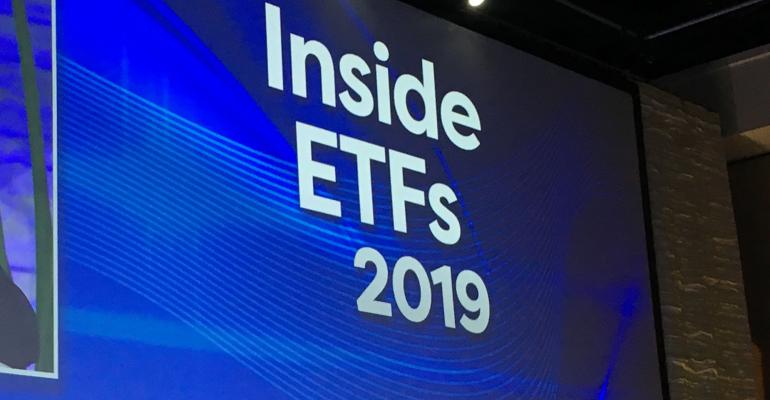Kristina Hooper, chief global market strategist for Invesco, doesn’t pull any punches in predicting the outcome of the U.S.-China conflict over trade.
“I think China wins the trade war,” she said at the Inside ETFs conference in Hollywood, Fla. “It’s a matter of how long until the U.S. capitulates.”
China has adjusted to the turmoil caused by the spat better than the U.S., Hooper said. While the Trump administration has to worry about dealing with Congress over economic policy, “China is already focused on stimulus,” she said. “It’s in better shape to weather the storm.”
China is likely to give on one issue. “It will lower its trade deficit [with the U.S.] quite significantly,” Hooper said. “The U.S. will declare a win. But the real win is intellectual property and market access issues. I don’t think China will give on that.”
As for the U.S. economy, it’s still strong, she maintained. “There are pockets of weakness, but I expect positive GDP for the rest of the year.” To be sure, the economic slowdown in Europe and elsewhere overseas represents a headwind for the U.S. “At a certain point, if there’s enough of a slowdown globally, it will be exported to the U.S.,” she said.
On the U.S. earnings front, “we’re likely to see deceleration, but not a dramatic one, just like the economy,” she said. Meanwhile, corporate governance is likely to undergo evolution. “It’s an area ripe for change,” Hooper said. “I hope there aren’t rules from the government, but I also hope companies do the right thing to better serve investors.”
Financial advisors are missing the importance of alternative investments for diversification, she said. “Equity and fixed income are likely to move lower with [a lot of] volatility,” she said. “You need exposure there, but you need alternative exposure too, if for nothing more than reducing volatility.” And ETFs are a great way to get that exposure, Hooper said.
“Passive investments are an important part of the ecosystem,” she said. Critics complain that ETFs exacerbate volatility. But ETFs actually counteract volatility, because they buy and hold their securities, Hooper said.
The U.S. is in the midst of its fourth industrial revolution, she said. “There are multiple American growth stories going forward, including artificial intelligence, robotics and blockchain,” Hooper said. “A number of areas of technology will become more mainstream and increase productivity.”
She’s concerned about shrinking immigration. “The great danger for the U.S. is if it curtails immigration, because so much of our innovation comes from students who come from other parts of the world,” Hooper said.
Populism and nationalism also represent threats around the globe, she said. “We’re going to continue to see populism and nationalism grow, especially where there’s more inequality.”
One cause of the problem is that monetary policy represented the sole response to the Great Recession, Hooper said. Fiscal policy offered little stimulus. So asset prices rose but not the economy.





